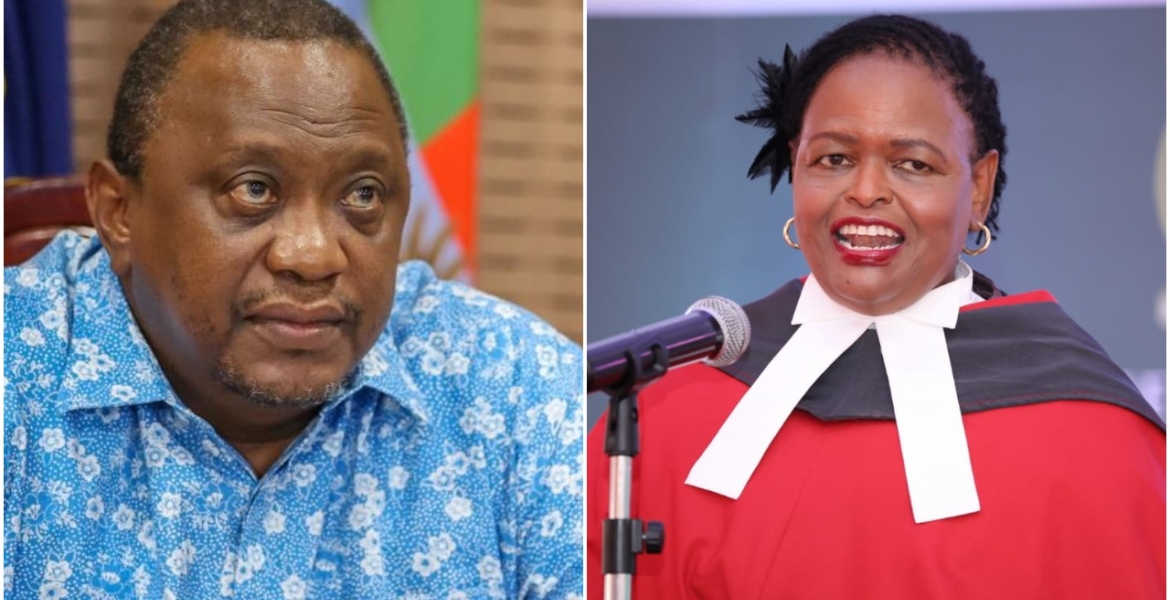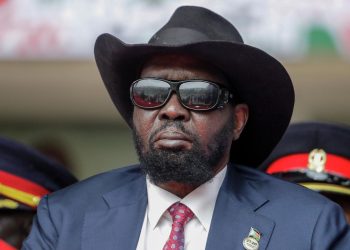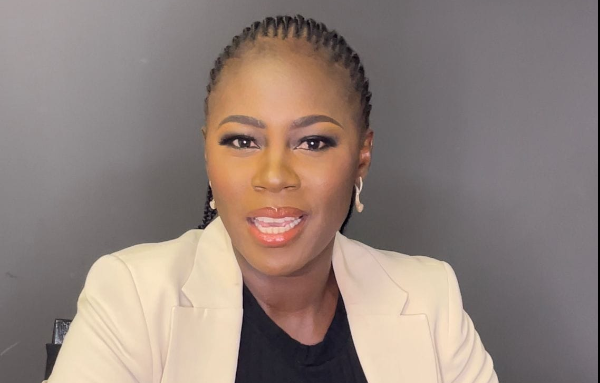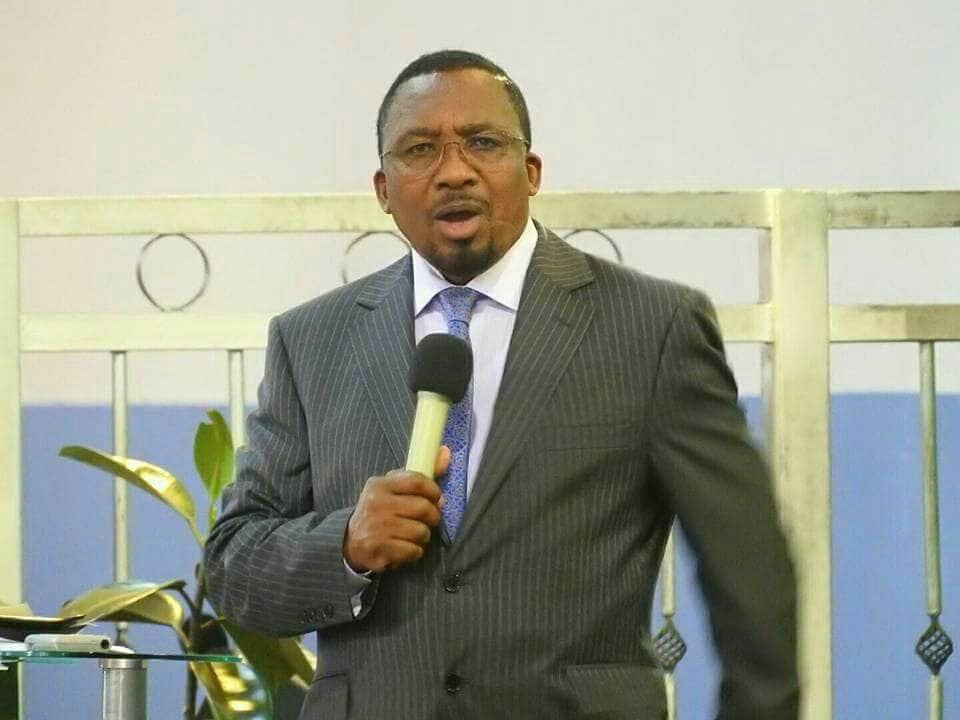President Uhuru Kenyatta has breached the Constitution by failing to appoint six of the 40 justices selected by the Judicial Service Commission (JSC) three years ago, according to Chief Justice Martha Koome.
The CJ also wants the court to rule that the only way to resolve the alleged infringement is for the President to be impeached.
Ms Koome has also declined to play the President’s role in an appeal against a High Court order directing Mr Kenyatta to appoint the six justices and, if he fails, the CJ to take over the responsibility.

Instead, she has advocated a statement that the President has broken the Constitution’s Articles 3(1) and 166(1)(b) or any other order that ensures the President’s direct accountability.
“It is proposed that the court makes a declaration that the President… is in violation of Articles 3(1) and 166(1)(b) of the Constitution. A declaration that the appropriate remedy for the violation of Articles 3(1) and 166(1)(b) of the Constitution is impeachment of the President or any other order that secures direct accountability of the President,” she says in the court papers.
Even if the President is found to have violated the Constitution by the appellate court, the planned impeachment may not proceed because it is a lengthy legal process and the President is eight weeks away from the end of his tenure.
In addition, Parliament has been adjourned indefinitely in preparation for the General Election on August 9.
The Constitution in Article145—on the removal of President by impeachment—provides that the impeachment motion moved by a member of the National Assembly must be supported by at least a third of all the members (232 MPs). CJ Koome alleges that the President has violated Articles 3(1) which states that “every person has an obligation to respect, uphold and defend this Constitution”.
The other provision that she alleges Mr Kenyatta has violated is Article 166(1)(b), which states that “the President shall appoint all other judges, in accordance with the recommendation of the Judicial Service Commission”.
The basis of the CJ’s proposal is Mr Kenyatta’s decision to decline to appoint the six judges to the High Court and the Court of Appeal as recommended by the JSC.
In turning down the recommendation for the appointment of the six nominees, the President cited an adverse National Intelligence Service (NIS) brief. He said they are tainted.
The judges at the centre of the legal tussle are Justices George Odunga, Aggrey Muchelule, Prof Joel Ngugi and Weldon Korir whom the JSC had elevated to the Court of Appeal. The others are chief magistrate Evans Makori and High Court deputy registrar Judith Omange—promoted to be High Court judges.
They were nominated by JSC in July 2019 alongside 35 others, but one of them, Harrison Okeche, died during the pendency of the impasse. The chairperson of the JSC at the time was then-Chief Justice David Maraga, who left office in January 2021.
President Kenyatta appointed 34 nominees on June 4, 2021, and rejected the six over alleged integrity issues, a move that escalated the longstanding legal battle between the Executive and the Judiciary.
A three-judge bench on October 21, 2021, while passing a verdict on a lawsuit filed by lobby group Katiba Institute, directed the President to appoint the six nominees within 14 days from the date of the judgment.
Also Read: Sh21.9bn budget deficit crippling services, says CJ Martha Koome
In the orders that have since been suspended by the Court of Appeal, the High Court had said that upon the expiry of the 14 days without Mr Kenyatta making the appointments, it would be presumed that his power/authority on the issue is expired. The court said the six nominees would be deemed as duly appointed to their proposed offices.
Subsequently, the High Court said CJ Koome and the JSC were at liberty to take all necessary steps in having the nominees sworn in and assigned duties.
But the CJ, Mr Kenyatta and Attorney General Paul Kihara Kariuki were aggrieved by the judgment and moved to the Court of Appeal with separate appeals.
In her memorandum of appeal filed by lawyer Charles Kanjama, the CJ says the High Court erred in directing her to perform the President’s role of appointing judges. Court papers indicate that she is also opposed to the High Court’s decision to give her authority to side-step President Kenyatta by appointing and swearing in the judges.
She says the High Court bench composed of justices George Dulu, William Musyoka and James Wakiaga failed to appreciate the constitutional values of separation of powers. “The learned judges erred in law and fact by failing to appreciate that applying a presumption of appointment could violate Constitutional values of separation of powers and direct accountability for each State officer,” says the CJ.
She also faults the High Court for failing to consider that she, as JSC chairperson, had no further mandate in the appointment. The mandate of the CJ had legally expired having forwarded the nominees to the President.
“The judges failed to consider that the CJ as the chairperson of JSC became ‘functus officio’ after having recommended to the President persons for appointment as judges as per article 172(1)(a) of the Constitution,” argues CJ Koome.














